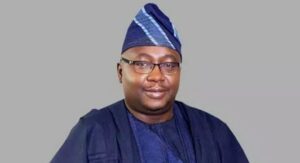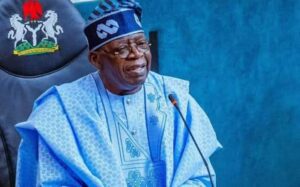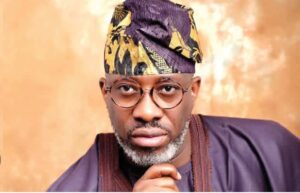Group tasks APC on inclusion of women in politics
By Joel Oladele, Abuja
An advocacy group, Aunty Zee 774 Coverage Initiative, has tasked the ruling All Progressives Congress (APC) on inclusion of women in governance and political decision-making process.
Speaking via a position paper delivered by its Grand Coordinator, Princess Ann Nwanyibuife Agom-Eze, during a visit to the national secretariat of APC on Wednesday, the group said women inclusion is the only antidote to bad governance.
According to Ann, without adequate women representation in government, it’s like “playing a half team when we have the capacity of playing a star studded full team.” She therefore called on all political parties to give more rooms for women to thrive in politics.
“Our great nation is at a crossroad. We are confronted and bedeviled by the hydra-headed monsters of banditry, terrorism, kidnapping, alongside unprovoked, gruesome and wanton killings across the country, especially in the northern regions. This, together with my colleagues across the whole country strongly believe, could be reasonably checked if we make sacrifices and adjustments to our style of selection of leaders at all levels of government to include women.
“With gender inclusion comes economic empowerment. There is no gainsaying the fact that Nigeria is greatly wasting a precious resource in the gross under-utilisation and poor representation of women in governance and politics.
“As the 2023 elections approach, Nigeria must therefore address the sizable gender gaps that undermine women’s inclusion in governance. There is sufficient and ever-increasing evidence that women inclusiveness in governance and political decision-making processes help nation-building,” Ann said.
The Grand Coordinator further revealed that, “the current statistics show just a paltry 11.2 per cent of female membership are in both chambers of the Ninth National Assembly (seven females in the Senate and eleven in the House of Representatives) out of the 479 members of the federal parliament, this according to her is worrisome.
“When there is gender balance in governance and leadership, the quality of lives amongst the populace is greatly improved. Upon the involvement of women in governance, they succinctly capture the needs of respective families and will ensure that policies are developed to suit the needs of their respective communities.
“When women are in governance, minority ethnic groups are less likely to be relegated to the background, rather they will be given their rightful places in the affairs of the nation. Women in power can be counted upon to cover issues others overlook, to support causes or ideas that other persons stoutly, vehemently oppose and make concerted efforts in the efforts to putting abuses that others accept to an end.
“The necessity of women’s participation in politics and governance is undeniable. Studies all over the world have shown that there is no instrument more effective in promoting good governance than the adequate empowerment of women.
“No other policy has the potential to reduce the rate of child and maternal mortality, which is a major cause of death amongst women in Nigeria and a bane in our society, than the conscious inclusiveness of women.”
She also highlighted insufficient financial resources, lack of viable information; disproportionate access to quality education; cultural barriers; diversities; and discrimination against rural women, among others as factors restraining women from actively participating in governance and politics in Nigeria.
“Government has a great role to play in reversing these retrogressive practices and this can be achieved by implementing the right mechanisms, providing incentives to women, encouraging them, reserving some elective political positions only for females and lastly, we must endeavour and ensure to make the political space less violent. These steps, I strongly believe, will encourage the massive participation and inclusion of women in politics.”
She added that some female political leaders around the world have written their names in gold through their outstanding performance in governance and expressed strong confidence in Nigerian women to do better if given the opportunity.
Such exemplary female leaders, “include Angela Merkel, the first woman to be elected as Chancellor and the third longest serving Chancellor in Germany, and Jacinda Arden, New Zealand’s current prime minister. Kamala Harris, currently serving as the first female vice president in the history of the United States of America. Nancy Pelosi, speaker of the United States House of Representatives. Indeed, the list is endless.
“We can also replicate this giant strides in our clime as our democracy is still young, and fledging. Hence, it is necessary, expedient, politically healthy and correct that every segment and entirety of our populace is given equal representation in both elective and appointive positions.
“Sufficient women representation in politics will increase creativity, originality and help to diversify the pool of talents, skills and abilities. In conclusion, I make bold to restate that in order to build a strong, robust and virile governance, women must not only be encouraged but empowered and supported in becoming strong political colossuses and amazons.
“We are on this day, pleading on the National Working Committee of our great party to play a role in seeing that majority if not all of Deputy Governors to be nominated within the party, in all states of the federation to be women.
“We are also advocating that this same act should be implemented across local governments of the federation. Consequently, my call with a very loud voice is for all hands (the party, executive and legislative arms of government, the clergy, the NGOs and the women themselves) to be on deck to make this a reality.”




